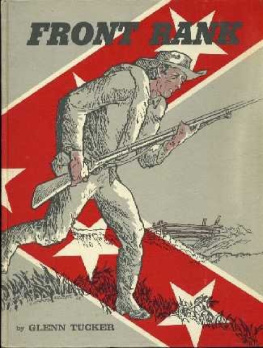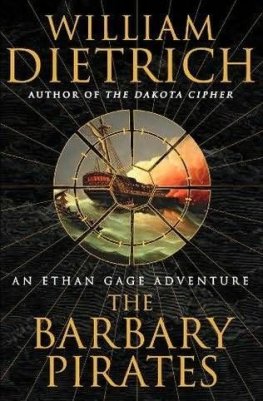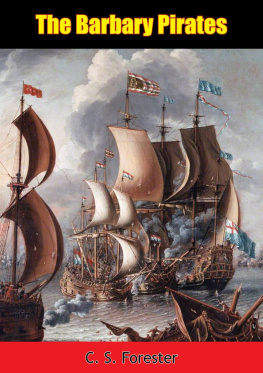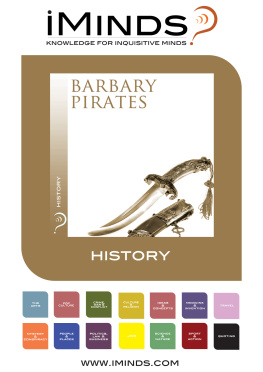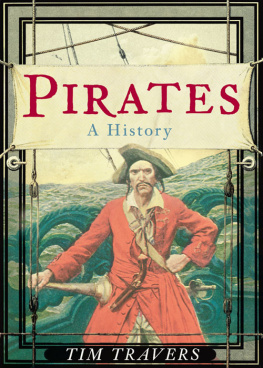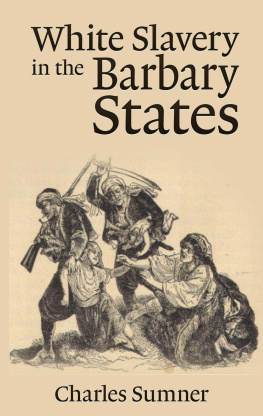Burtyrki Books 2020, all rights reserved. No part of this publication may be reproduced, stored in a retrieval system or transmitted by any means, electrical, mechanical or otherwise without the written permission of the copyright holder.
Publishers Note
Although in most cases we have retained the Authors original spelling and grammar to authentically reproduce the work of the Author and the original intent of such material, some additional notes and clarifications have been added for the modern readers benefit.
We have also made every effort to include all maps and illustrations of the original edition the limitations of formatting do not allow of including larger maps, we will upload as many of these maps as possible.
DAWN LIKE THUNDER
The Barbary Wars and the Birth of the U.S. Navy
GLENN TUCKER
Dawn Like Thunder was originally published in 1963 by The Bobbs-Merrill Company, Inc., New York. Maps by Dorothy Thomas Tucker.
Cover: Burning of the frigate Philadelphia in the harbor of Tripoli, 16 February 1804, by Edward Moran, painted 1897.
CHAPTER ONE New Colors in a Far Port
The clear, languid dawn of November 9, 1800, crept out of the Bosporus and across the Sea of Marmora and revealed to early watchers along the shore a strange ship riding at anchor inside the Golden Horn.
She had come up under darkness, at 10 oclock on the night before, and now at daybreak she flew from her mizzenmast a novel flag of red and white stripes and white stars on a field of blue, colors unknown in these waters.
The American frigate George Washington , of 24 guns, Captain William Bainbridge commanding, out of Philadelphia , was calling on official business at the Sublime Porte.
Across the city seated on its rolling hills sounded the long, singsong wails of the Moslem priests, calling plaintively from the rooftops, towers, and mosques, notifying the faithful that Allah had bequeathed a new day.
Scarcely were these morning supplications ended and faces turned from Mecca to matters close at hand, when a harbor patrol boat put out from the waterfront castle. Coming alongside the American ship, the captain of the harbor hailed the impertinent newcomer who had penetrated unannounced to the very heart of the Ottoman power, and now held beneath her guns the sacred mosque of Mohammed the Conquerer, Standard Bearer of the Prophet, and the art and treasures of the Moslem world. Captain Bainbridge replied politely that the colors he flew were those of the United States of America. The inquiring officer wasted no time in conversation but turned his boat back toward the shore.
Bainbridge had displayed considerable daring in venturing unheralded into the harbor of Constantinople and might expect to face any consequence, considering that the world was being torn apart by Napoleons wars, which had fallen with early fury on the Near East. Anywhere in the Levant, unfamiliar elements might be looked on with suspicion. He had effected his passage of the Dardanelles, where it was the imperious rule of the Porte that all vessels must be inspected and those cleared be given the required passport before entering the Sea of Marmora, by a ruse characteristic of the resourcefulness of early American seamanship.
Never before, as long as memory, record, or tradition extended back into Constantinople history, to the year 1453 when the Ottomans overran the ancient seat of Greek and Roman power, had an armed foreign vessel entered the harbor of the Golden Horn without having first been granted leave at the Dardanelles way station, two powerful fortresses overlooking both sides of the narrows near the entrance to the historic strait. What a visitor required was a firman, the distinctive passport of royal decree, issued by the Grand Seignior himself, the Sultan of the Turks.
But Bainbridge was concerned neither with inviolable precept nor Oriental form. He was on a mission which from the beginning had irked his sensibilities and galled his ardent patriotism and he wanted to be done with it with the least possible delay. He was justifiably apprehensive. He had learned back in Algiers that he would probably be compelled to remain in the strait until word of his approach could be carried to Constantinople and the willingness of the government to receive him ascertained. He was taking no chances that his ship might not be cleared and that his long, tedious voyage thus would be rendered fruitless.
As he approached the towering citadel which guarded his side of the passage of the Dardanelles, he directed his crew to scurry across the decks and give evidence that they were taking in sail, indicating that the George Washington would heave to and inquire the pleasure of the Turkish commander. Then he began firing a saluteof eight guns, according to the ships log.
Quickly the fort returned the salute. Bainbridge counted six guns, but they were enough that both ship and fort were soon enveloped in heavy billowing smoke. Under this screen, undetected by the shore batteries, unsuspected by the Turkish captain, the American commander had his seamen hurriedly load on canvas and speed the frigate forward.
Thus, behind the smoke clouds, the George Washington moved fleetingly and gracefully out of range. She had already doubled a protecting promontory before the perplexed Turkish commander understood the wily Americans stratagem. Bainbridge had a notation entered in his log that the castles have the Outward appearance of Being very Strong, with eight tiers of guns, the lowest tier being on the waters edge. They were reputed at the time to throw the largest shot in the world, even to cannon balls with a diameter of three feet!
Midshipman Benjamin Page, of Providence, Rhode Island, who kept the log, either was a student of the classicsthough his syntax and spelling would not suggest familiarity with his hometown college of Brown or nearby Harvard or Yaleor else he had a translation of Homer on board, for he was entranced with landmarks of the great conflict of Greek against Trojan as he went through the Aegean and Dardanelles. He took note during the voyage of Tenedos, opposite which stood famous Troy; of Mount Ida where the Gods Assembled to view the Battle; and of the island of Lemnos where they fed there [sic] horses of Nectar and Ambrosiathe Island where Vulcan Lit when he fell from Heaven and Established his forge.
Now that the George Washington was securely in the harbor, how the Turkish government would receive her was any sailors guess. Soon the dispatch boat returned with the startling message for Captain Bainbridge that neither his flag nor the nation of the United States of which he spoke had ever been heard of by the Turkish government before . He was directed to be more specific in explaining whence he came. All that the captain could do was append to his earlier communication a short lesson in history and geography. He said he and his vessel were from the New World which Christopher Columbus long since had discovered far across the seas.
Several hours passed. All aboard the George Washington waited patiently in the lower harbor. Finally the dispatch boat put out again and this time the harbor captain, serving as emissary for the Sublime Porte, deigned to set foot on freshly scrubbed New World timber, while behind him came porters bearing to the frigates deck the symbolic gifts of a lamb and a bouquet of flowers, the first offered as a token of peace, the second an expression of welcome. Obviously someone had been found in Constantinople, and perhaps it was the Sultan himself, a ruler enlightened above most Oriental despots of his day, who had heard something about George Washington, Christopher Columbus, and the United States of America.


